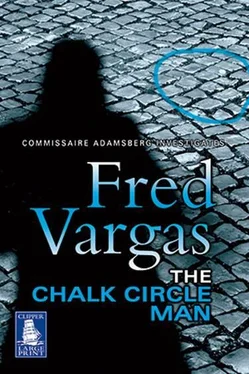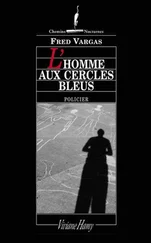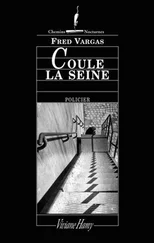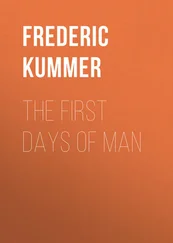Paris had been a stroke of luck. The only city in France for which he could feel affection. For a long time, he had thought that where he lived was a matter of indifference, like the food he ate, the furniture around him, or the clothes he wore – all either donated or inherited, or picked up here and there.
But in the end, deciding where to live wasn’t so simple. As a child, Jean-Baptiste Adamsberg had run around barefoot in the stony foothills of the Pyrenees. He had lived and slept there, and later, after becoming a policeman, he had been obliged to work on murders committed there, murders in the stone-built villages, murders on the rocky paths. He knew by heart the sound of pebbles underfoot and the mountain’s way of gripping you and clutching you to its heart like a muscular old man. In the police station where he had started working at twenty-five, they had called him ‘the wild child’. Perhaps this was a reference to his being primitive, or solitary – he wasn’t sure. He found it neither original nor flattering.
He had asked the reason once, from one of the younger women inspectors – his direct superior, whom he would have liked to kiss, but since she was ten years older than him he hadn’t dared. She was embarrassed and had said: ‘Work it out, look at yourself in the mirror, you’ll get there on your own.’ That evening he had looked – without any pleasure, since he liked tall pale people – at his small, solid, dark-complexioned figure, and the next day he said: ‘I stood in front of the mirror and looked, but I still didn’t understand what you meant.’
‘Oh, Adamsberg,’ the inspector had said, rather wearily and with some exasperation, ‘why do you say things like that? Why do you ask questions? We’re working on a case about stolen watches, that’s all there is to know. I’m not going to start talking about your body.’ She had added: ‘I’m not paid to talk about your body’.
‘OK,’ Jean-Baptiste had said. ‘No need to get worked up about it.’
An hour later, he heard the typewriter stop and the inspector had called him in. She was looking cross. ‘Let’s just have it out once and for all,’ she said. ‘You have the body of a child of nature, that’s what it is.’ He had replied, ‘Do you mean it’s primitive? Ugly?’ She looked even more exasperated. ‘Don’t push me to tell you that you’re good-looking, Adamsberg,’ she had said. ‘But you have a certain grace about you that’s unique – you’ll just have to get used to that in your life.’ And there had been both weariness and tenderness in her voice, of that he had been sure. So that, even now, he recalled the conversation with a pleasurable shiver, especially since it had never reached that degree of intimacy again. He had waited for it to go further, with his heart racing. Perhaps she was going to kiss him. Perhaps. But she kept her distance and never spoke of it again. Except once, in despair: ‘You’re not cut out for the police, Jean-Baptiste. There’s no room for wild creatures like you in the police.’
Well, she had been wrong. Over the next five years, he had solved, one after another, four murders in a way that his colleagues had found uncanny, in other words unfair and provocative. ‘Don’t get above yourself, Adamsberg,’ they’d said. ‘You sit around daydreaming, staring at the wall, or doodling on a bit of paper as if you had all the time and knowledge in the world, and then one day you swan in, cool as cucumber, and say “Arrest the priest. He strangled the child to stop him talking.”‘
So the wild child who had solved four murders found himself promoted to inspector, then to commissaire , but he was still inclined to doodle for hours, resting pieces of paper on his knee, scoring the fabric of his nondescript trousers. Two weeks ago, he had been offered a posting to Paris. He had left behind him office walls covered with graffiti which he had scribbled there over the last twenty years, without ever getting tired of life.
But how weary of other people he sometimes felt! It was as if, all too often, he knew in advance exactly what he was going to hear. And every time that he thought: ‘This person is going to say such-and-such now’, he hated himself, especially when the person in question did say exactly that. Then he suffered, begging some god to give him a surprise one day, instead of foreknowledge.
Sitting in a café across the street from his new office, Jean-Baptiste Adamsberg stirred his coffee. Did he know now why they called him the wild child? Yes, it had become a little clearer, but people weren’t very careful how they used words. He was particularly bad at it himself. What was certain was that Paris was the only place that could provide him with the mineral surroundings that he realised were important to him.
Paris, city of stone.
There were trees, of course, inevitably, but you could ignore them, you just had to avoid looking at them. And there were parks, but you simply kept out of them, and that was fine too. By way of vegetation, Adamsberg preferred straggling shrubs and root crops. What also seemed certain was that he hadn’t changed much over the years, since the expressions on the faces of his new colleagues reminded him of his fellow officers in the Pyrenees twenty years ago: the same discreet bafflement, the same whispers behind his back, nods of complicity, pulled faces, fingers splayed in gestures of surrender. So many silent communications that seemed to say: ‘Who is this character?’
He had gently smiled and shaken hands, gently explained and listened. Adamsberg did everything gently. But he was eleven days in now, and his colleagues were still not approaching him without that look: one that suggested they were trying to work out what kind of species they were dealing with, what it should be given to eat, how it should be spoken to, how one might amuse or interest it. For eleven days, the 5th arrondissement station had been plunged into whispers, as if some fragile mystery had suspended ordinary police routines.
The difference between this situation and Adamsberg’s early days in the Pyrenees was that nowadays his reputation made things a bit easier. However, that still didn’t alter the fact that he was an outsider. The day before, he had overheard the oldest Parisian in the team saying in a low voice: ‘Ah well, he’s from the Pyrenees – pretty much the edge of the known world.’
He ought to have been at the office half an hour ago, but Adamsberg was still sitting across the road, stirring his coffee.
It wasn’t that he permitted himself to turn up at work late just because, nowadays, at the age of forty-five, he had won the respect of those around him. He had already been turning up late at twenty. Even for his own birth, he had been sixteen days late. Adamsberg didn’t wear a watch, but he was unable to say why, and he had nothing against watches. Or umbrellas. Or anything else, really. It wasn’t so much that he did as he pleased, more that he was unable to force himself to do something if he was in a contrary mood at that moment. He had never been able to do that, even in the days when he had wanted to attract the beautiful police inspector. Even for her. People had said resignedly that Adamsberg was a lost cause, and he sometimes thought the same himself. Not always, though.
And today his mood pushed him to sit stirring his coffee, slowly. A textile merchant had been killed three days earlier, in his own warehouse. His accounts had looked so irregular that three inspectors were going through the customer files, convinced that the murderer’s name would be found there.
Ever since he had seen the dead man’s family, Adamsberg had not felt too concerned about this case. His inspectors were searching for a client who’d been cheated, and they even had one serious lead, but he had been keeping an eye on the murdered man’s stepson, Patrice Vernoux, a fine-featured, romantic-looking young man of twenty-three. That was all Adamsberg had done: keep an eye on him. He had already called him in three times to the station on different pretexts, getting him to talk about this and that: what did he think of his stepfather’s bald patch – did it disgust him? Did he like the textile business? What did he think when the electricity workers went on strike, why did he think so many people were interested in their family tree?
Читать дальше












